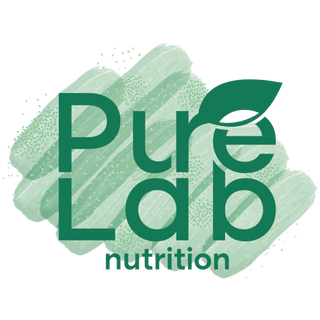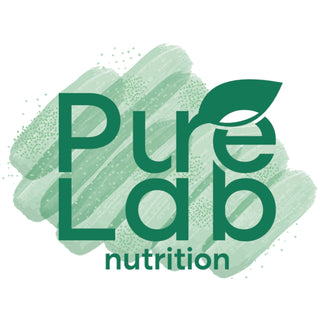Summary
Collagen: the keys to youth
- What is collagen?
- How does collagen work?
- Vegan collagen: does it exist or not?
- Collagen production by biotechnology
- And what about vegetarian collagen?
- Animal collagen: a virtuous circle for biowaste?
Ethically, the promises of today's beauty products are numerous, and among them often figure respect and protection of animals.
We too are attentive to this subject and we do our utmost to ensure that this concern is at the heart of our approach.
However, is there really a vegan version of this precious protein?
Can we really find an effective and ethical plant-based alternative to collagen? 🌱
Collagen: the keys to youth
In the world of beauty and wellness, the word “collagen” is now omnipresent. Beauty magazines, blogs, health forums: everyone (almost) swears by this protein. But why?
Here we go, we reveal all the mysteries of collagen (vegan?!)!
Our recommendations to boost growth:
Try our Hydrolyzed Marine Collagen, enriched with:
• Vitamin C for better absorption
• Hyaluronic acid, known for its anti-aging effects
• Coenzyme Q10, a powerful antioxidant
• Biotin, essential for healthy hair and nails
✅ 3-in-1 action: for skin, joints and hair
✅ 1000 mg of marine collagen per dose
✅ 90 easy-to-swallow capsules
✅ Made in France 🇫🇷
Discover our Hydrolyzed Marine Collagen here.
What is collagen?
Collagen is a fibrous protein found in many living organisms, including humans. It is one of the main components of connective tissue, which is roughly the tissue that, among other things, supports and nourishes cells.
Collagen provides strength and elasticity. It is very present in skin, tendons, ligaments, cartilage, bones and blood vessels.
There are several types of collagen, of which types I, II, and III are the most common.
- Type I collagen is very present in the human body. It is mainly found in skin, tendons, bones and teeth. It contributes to the firmness and structure of the skin and ensures the strength of tendons and bones.
- Type II collagen is found primarily in cartilage. It is essential for proper joint function, providing both elasticity and strength.
- Type III collagen is found in skin, muscles and blood vessels. It provides support and maintains tissue elasticity.
What are the benefits of collagen?
The presence of this protein in our body alone ensures numerous functions:
- Maintaining skin structure : Collagen gives skin its firmness and elasticity. It helps prevent wrinkles and sagging skin, and plays a key role in wound healing.
- Joint and Cartilage Support : Collagen is essential for proper joint function, providing both elasticity and strength. It helps cushion shock and maintain joint mobility, reducing the risk of joint pain and disorders.
- Muscle Support : Collagen contributes to the structure of muscles, especially skeletal muscles. It helps maintain muscle strength and mass, especially important as we age.
- Nail and Hair Health : Collagen is also beneficial for nails and hair, giving them strength and resilience. It can help prevent brittle nails and strengthen hair, making it less prone to breakage.
Vegan collagen: fact or fiction?
Concerned about animal welfare, you may have opted for a vegan diet. While it is obvious that this dietary choice helps reduce animal exploitation and preserve the environment, it is also important to ensure the effectiveness of the products consumed.
As you may have noticed, finding alternatives that are compatible with this lifestyle can sometimes be difficult. Collagen is one of these challenges.
Being an animal protein mainly present in the extracellular matrix, it is not possible to find a natural vegan source of collagen.
So no, vegan collagen does not exist!
Beware of false promises about vegan collagen… Perhaps you have already noticed products bearing the label “vegan collagen”?
Most of the time, this vegan collagen is derived from plant amino acid blends designed to mimic the human amino acid profiles needed to form collagen. But keep in mind that these blends don’t actually contain collagen.
In fact, it is the specific sequences of amino acids that combine to form peptides that make collagen functional. Since these are absent in plant products, these so-called vegan collagens cannot reproduce the same effects as collagen derived from animals.
Collagen production by biotechnology
Don't lose hope, science continues to progress... Biotechnologies, such as synthetic genetics, fermentation and protein engineering, now make it possible to produce bioactive compounds, opening the way to new opportunities.
Regarding collagen, a potential approach using bacteria and yeast is currently being investigated. At present, it appears that the amino acid sequences produced are not sufficiently varied. The effectiveness of this collagen is therefore still not comparable to that from animal sources. In addition, this method raises ethical concerns due to the use of genetically modified organisms (GMOs) in the production process.
Well, even though we are still far from vegan collagen, let's keep our fingers crossed that scientific research will bring us closer to this goal. 🤞
And what about vegetarian collagen?
Vegetarian collagen comes from the membrane of eggs. Since the vegetarian diet allows their consumption, this alternative seems like a great option at first glance.
Vegetarian collagen from egg membrane is actually a so-called “native” collagen. This term means that the collagen protein remains in its natural form, as it is present in the egg membrane, without being broken down into smaller peptides through hydrolysis.
Okay, that's a bit complicated! 🤯 To put it simply, it means that the collagen is not altered by chemical processes or any other manipulation, which seems to be a good thing.
On the other hand, it is important to know that this characteristic affects its bioavailability, that is, its ability to be digested and absorbed by the body. The problem is that natively structured proteins are more difficult to break down by digestive enzymes.
Additionally, since the production process for this collagen is more complex than that of hydrolyzed collagen, the prices of products containing vegetarian/native collagen are often much higher…
Animal collagen: a virtuous circle for biowaste?
As surprising as it may seem, it is actually more virtuous to consume animal collagen than vegan collagen (well, supposedly vegan).
In fact, raw materials, such as skins or bones, are collected from slaughterhouses or meat or fish processing industries. Animals are never slaughtered to produce collagen! 😌
So, if these animal by-products were not used to produce collagen, they would simply be thrown away! We advise you to remain vigilant about the quality of the raw materials used.
Collyss® and Cartidyss® are partners we trust completely. Collagen extraction is carried out from fish skins. This company holds the “Friend of the sea” label.
Thanks to a gentle enzymatic process, the marine collagen obtained has a unique amino acid profile and is free of any additives.
Conclusion
While vegan collagen doesn’t exist yet, it’s important to ask questions about the environmental impact of alternatives and the sustainability of products that claim to mimic animal-based collagen. Today, collagen from animal products, if sourced responsibly, can offer a more sustainable and environmentally friendly solution.












